
THREAD: us calls out russia major
LifeLine™ Media threads use our sophisticated algorithms to construct a thread around any topic you want, providing you with a detailed timeline, analysis, and related articles.
News Timeline

RUSSIA’S Shocking Attack on Ukraine: EU Calls for Tough Sanctions
— European leaders are outraged by Russia’s missile attack on Sumy, Ukraine, which killed 34 and injured 117. The strike happened during Palm Sunday celebrations, marking the second major civilian tragedy in just over a week.
Polish Foreign Minister Radek Sikorski slammed Russia’s actions as mocking U.S.-led ceasefire efforts. He urged President Trump to see Russia’s blatant disregard for peace initiatives.
Finnish Foreign Minister Elina Valtonen noted the attack followed talks between Trump’s envoy and Putin, showing Russia’s indifference to peace and human life. Lithuania called using cluster munitions a war crime.
French Foreign Minister Jean-Noël Barrot demanded strict EU sanctions against Russia to cripple its economy and stop its war efforts, stressing Putin’s refusal to end hostilities willingly.
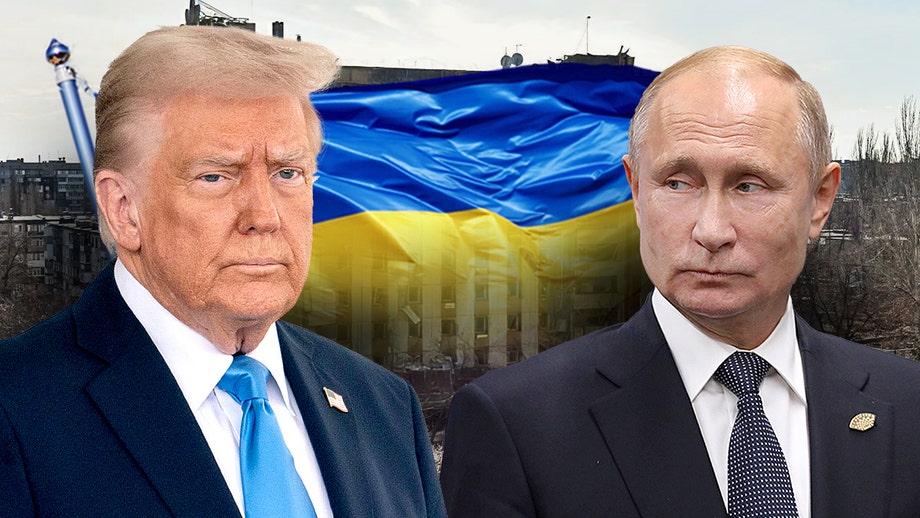
RUSSIA’S CEASEFIRE Bluff: Will They Really Stop the Conflict?
— Secretary of State Marco Rubio announced that RUSSIA’s commitment to a ceasefire in Ukraine will soon be tested. Speaking at NATO headquarters, Rubio stressed the U.S.’s desire to end the conflict and warned against potential delay tactics by Moscow.
Russia’s rejection of a 30-day ceasefire proposed by Ukraine and its conditions for a Black Sea truce have raised doubts about its intentions. The Trump administration remains cautious, with President Trump unwilling to engage in endless talks without concrete actions from Russia.
Rubio avoided detailing Russia’s conditions for peace but pointed out discrepancies between official reports and actual discussions with foreign leaders. This was clear after President Trump’s call with Russian President Putin, where differing accounts emerged about commitments on Black Sea force usage.
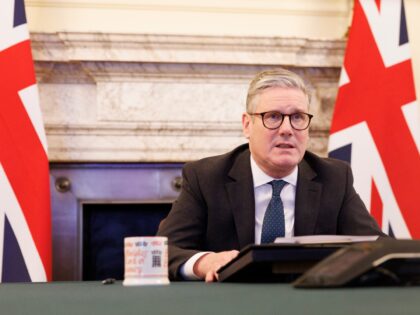
TRUMP vs PUTIN: The Dramatic Ukraine Ceasefire Standoff
— An upcoming virtual summit, led by Starmer’s “coalition of the willing,” will discuss military and financial aid for Ukraine. The meeting will also consider a peacekeeping mission if Russia agrees to talks.
About 25 countries, including European partners and Ukraine, plan to join. Notably missing is the United States, which has changed its stance on the war under President Donald Trump after his recent clash with Ukrainian President Zelenskyy in the Oval Office.
The U.S. proposed a 30-day ceasefire in Ukraine, backed by Zelenskyy but met with conditions from Putin. Secretary of State Marco Rubio expressed “cautious optimism” about Putin’s potential agreement after talks with U.S. envoy Steve Witkoff.
Starmer doubts Putin’s intentions and criticizes his delay tactics regarding Trump’s peace plan. He insists that concrete commitments are needed as Putin continues playing “pointless games” with ceasefire proposals, showing little seriousness about achieving peace.
US Calls Out RUSSIA as a Major PEACE Blocker
— The United States has called Russia the main “impediment” to peace in ongoing conflicts. This marks a big shift in U.S. foreign policy as tensions rise and Russia rejects a ceasefire call. The announcement could greatly affect diplomatic efforts and talks in the region.
America’s new stance on Russia raises questions about future diplomacy and possible tension escalation. The push for a ceasefire highlights struggles in conflict zones worldwide, showing the challenges of international diplomacy.
In other news, the Securities and Exchange Commission (SEC) reported a major financial move by Capital Asia Investments Pte Ltd. from Singapore on March 12, 2025. The company sold 123,923,085 shares from Bangchak Corporation Public Company Limited, marking an important event in finance.

RUSSIA’S Ceasefire Dilemma: US Negotiations Face Challenges
— Russian President Vladimir Putin is facing hurdles in agreeing to a ceasefire with Ukraine. A senior Russian source says any deal needs detailed terms and guarantees. The United States is actively involved in talks, but Moscow insists that agreements must be on its terms, not Washington’s.
GREENLAND ELECTION SHOCKS WORLD: Trump’s ANNEXATION Threat BACKFIRES
Greenland’s center-right opposition party won a key election influenced by President Donald Trump’s annexation threat. The election showed Greenlanders’ strong desire for independence from Denmark, with 85% opposing US annexation. Recent polls reveal that nearly half of the population sees Trump’s interest as a threat.
TRUMP’S TRADE WARS: Global MARKETS on EDGE
President Trump continues to push tariffs, causing retaliation from the EU and Canada and unsettling global markets. This strategy raises fears of a potential U.S. recession and broader economic slowdown as investor confidence wavers under trade tensions’ pressure.
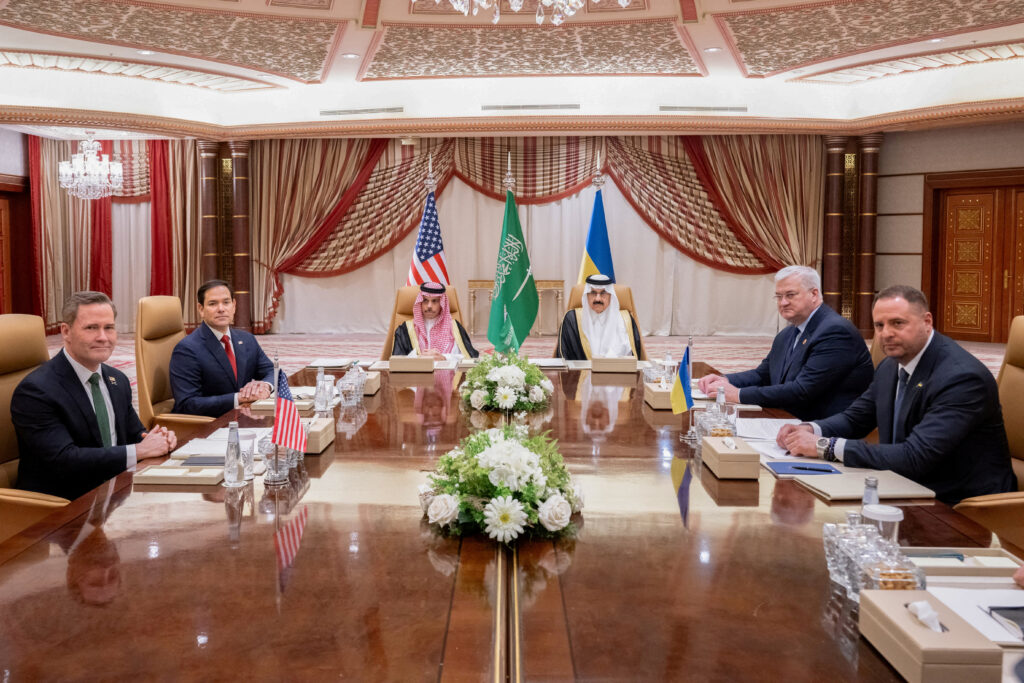
UKRAINE and RUSSIA Ceasefire: A Shocking Step Toward Peace
— The United States will resume military aid and intelligence sharing with Ukraine. This decision follows recent talks in Saudi Arabia. Kyiv is ready to accept a U.S. proposal for a 30-day ceasefire with Russia.
This marks a big change in the ongoing conflict between Ukraine and Russia. The proposed ceasefire aims to lower tensions and open the door for more diplomatic talks. Both countries have been locked in long hostilities, affecting regional stability.
The agreement highlights the U.S.'s commitment to supporting Ukraine against Russian aggression. Military aid is vital for Ukraine’s defense, while intelligence sharing boosts strategic abilities. This move could lead to more comprehensive peace talks soon.

UKRAINE’S Shocking Move: US Ceasefire Plan Accepted
— Ukraine and the United States announced a major development on Tuesday. After discussions in Saudi Arabia, Ukraine agreed to a U.S. proposal for a 30-day ceasefire with Russia. This decision comes as the U.S. resumes military aid and intelligence sharing with Kyiv immediately.
The joint statement from both countries highlights their cooperation amid ongoing tensions with Russia. The ceasefire aims to provide a temporary halt in hostilities, allowing diplomatic efforts to take center stage.
This move is seen as a strategic step by the Biden administration to stabilize the region temporarily while exploring long-term solutions. Critics argue that such measures may only offer short-lived relief without addressing deeper issues in Eastern Europe.

US RESUMES SECURITY Support to Ukraine: A Bold Move for Peace
— The United States will restart military aid and intelligence sharing with Ukraine. This decision comes after Kyiv showed it is ready to accept a U.S.-proposed 30-day ceasefire with Russia.
This action is part of a larger diplomatic plan to stabilize the region amid ongoing tensions. US officials emphasize how crucial this aid is for Ukraine’s defense and regional stability.
Both countries are in talks to reduce conflict and find lasting peace solutions. Restarting support marks a big step in US-Ukraine relations during these tough times.
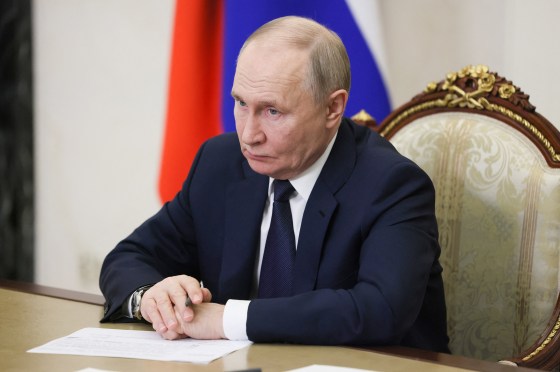
MACRON’S Bold Accusation: Putin Branded an "Imperialist
— French President Emmanuel Macron has called Russian President Vladimir Putin an “imperialist.” This came after Putin compared Macron’s nuclear deterrent proposal to Napoleon’s actions. The exchange highlights the ongoing tension between France and Russia over military and geopolitical strategies. It underscores the broader conflict in international relations as both nations navigate their roles on the global stage.
CYCLONE ALFRED’S WRATH: Australia Faces HAVOC
Cyclone Alfred, now a tropical low, continues to batter Queensland with severe weather. A body was found during the search for a man swept away by floodwaters, showing the storm’s deadly impact. Emergency services are responding to significant property damage across affected areas.
POPE FRANCIS’S HEALTH SCARE: Concerns MOUNT
Pope Francis has been hospitalized for three weeks due to double pneumonia, raising concerns about his health at 88 years old. His hospitalization marks a vulnerable time for the Pope, who is engaging in prayers and therapy during treatment. The situation highlights his frailty amid ongoing health challenges.
The United States has stopped sharing intelligence with Ukraine shortly after suspending military aid, sparking worries over Ukraine’s defense capabilities against Russia. US negotiators are working on finding ways to address these

US SHOCKS World by BACKING Russia at UN: A Controversial Move
— On March 6, 2025, the United States marked the third anniversary of Russia’s invasion of Ukraine by siding with Moscow at the United Nations. The U.S. joined a group of autocratic nations opposing a resolution condemning Kremlin aggression. This resolution, introduced by Ukraine, passed with support from 93 nations while 65 abstained from voting.
The resolution condemns the February 2022 invasion and holds Russia responsible for starting it. Ukrainian Deputy Foreign Minister Mariana Betsa urged nations to promote “just and lasting peace.” The vote signifies a diplomatic setback for the Trump administration, which had encouraged European allies to oppose it.
The Trump administration proposed its own resolution that avoided directly blaming Russia for the war. European nations revised this proposal to highlight “the full-scale invasion” by Russia, leading to U.S. abstention on its own measure.
In aligning with Russia and allies like North Korea and Belarus, Ambassador Dorothy Shea defended the U.S.'s focus on ending the war rather than assigning blame. She noted past resolutions failed to stop ongoing suffering in Ukraine and beyond.

“TRUMP’S Bold Peace Plan with Russia and Ukraine Stirs EU Fears”
— European leaders are worried about President Trump’s efforts to broker peace between Ukraine and Russia. The EU’s top diplomat claims Russian President Putin is not interested in peace. Trump mentioned having “very good talks with Russia” but did not share details on any progress made.
NATO allies and long-time U.S. partners are frustrated by Trump’s remarks on Ukraine, seeing them as an attempt to improve ties with Moscow. EU High Representative Kaja Kallas stressed the need for dialogue but noted Russia’s reluctance for peace.
Trump held his first Cabinet meeting, stating NATO membership was not an option for Ukraine, which could change the conflict’s dynamics. Kallas urged more economic and political pressure on Russia to strengthen Ukraine both militarily and diplomatically.
As Trump and Ukrainian President Zelenskyy work towards a minerals deal, there is hope it might lead to ceasefire talks, though doubts linger about its effect on achieving lasting peace.
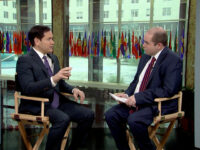
RUBIO SOUNDS Alarm on Russia-China Threat
— Senator Marco Rubio is sounding the alarm about Russia’s growing reliance on China. He warns this could lead to two nuclear powers uniting against the United States. Rubio stresses that U.S.-China relations will shape the century and highlights the need for diplomatic ties with both nations. A permanent Russia-China alliance, he says, threatens global stability and American interests.
While in Panama, Rubio convinced its government to leave China’s Belt and Road Initiative. He stressed the Panama Canal’s strategic importance for U.S. trade and voiced concerns over Chinese control of key ports there. Criticizing past decisions that let China gain influence in this vital region, he called for pro-American partnerships in Latin America.
Rubio praised President Trump’s efforts to counter China’s global influence through projects like the India-Middle East-Europe Economic Corridor (IMEC). This initiative aims to create new trade routes, reducing dependence on China’s economic power. Trump’s strategy strengthens alliances worldwide, especially where Chinese debt diplomacy is a threat, ensuring America’s interests are protected globally from a strong position.
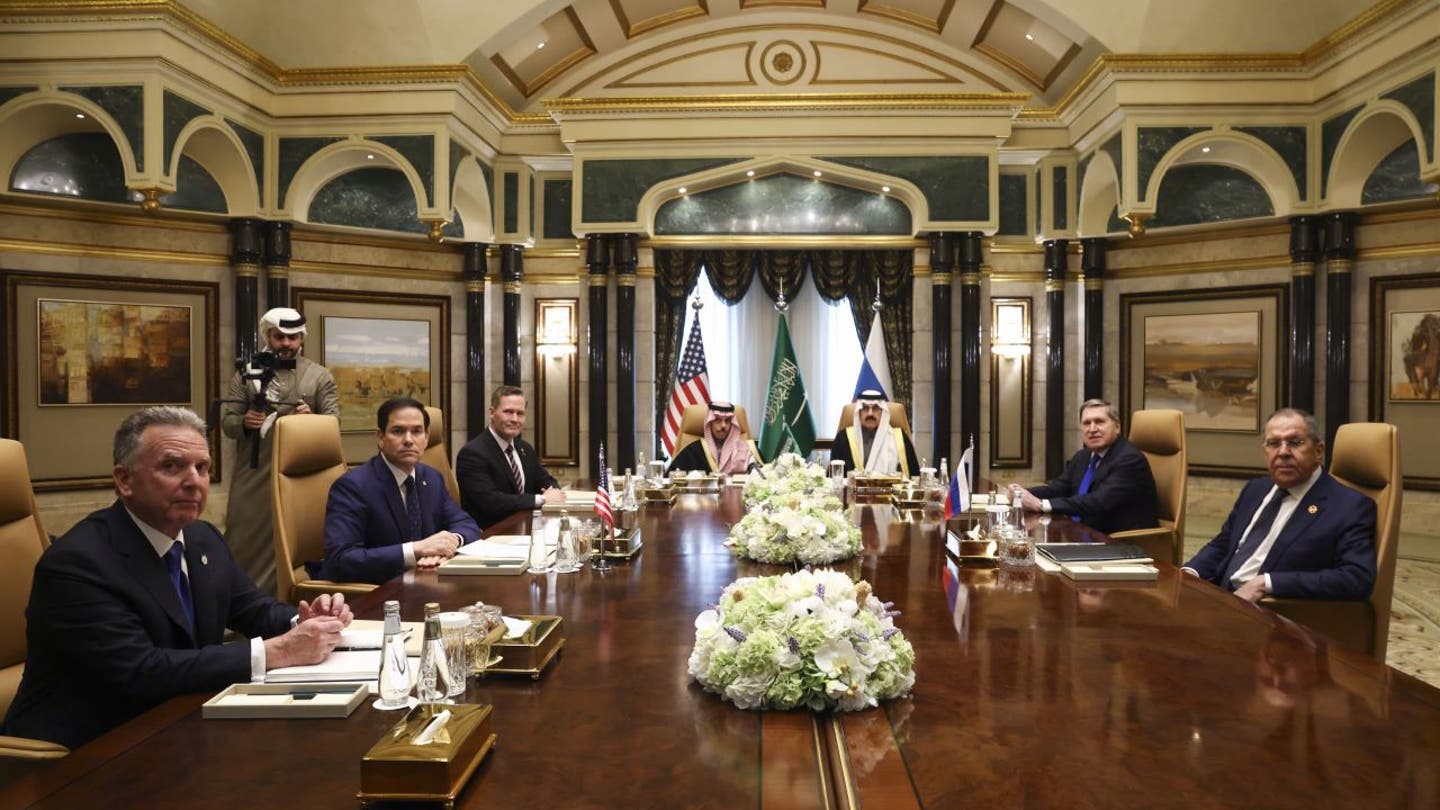
US and RUSSIA Seek PEACE: Bold Moves to End Ukraine Conflict
— The U.S. and Russia are working to improve diplomatic ties, aiming to end the war in Ukraine. Secretary of State Marco Rubio met with Russian officials in Saudi Arabia for over four hours. They discussed reestablishing diplomatic missions in Washington and Moscow. Rubio stressed the need for operational facilities as a base for further talks.
Rubio proposed forming a “high-level team” to negotiate an end to the Ukraine conflict, though leadership details are unclear. The Trump administration plans to expand geopolitical and economic relations with President Putin as part of this effort.
While Rubio didn’t specify when sanctions against Russia might be lifted, he highlighted the importance of EU involvement due to their strict sanctions on Russia. This development marks a significant step towards cooperation between the U.S., Russia, and Europe in resolving tensions.
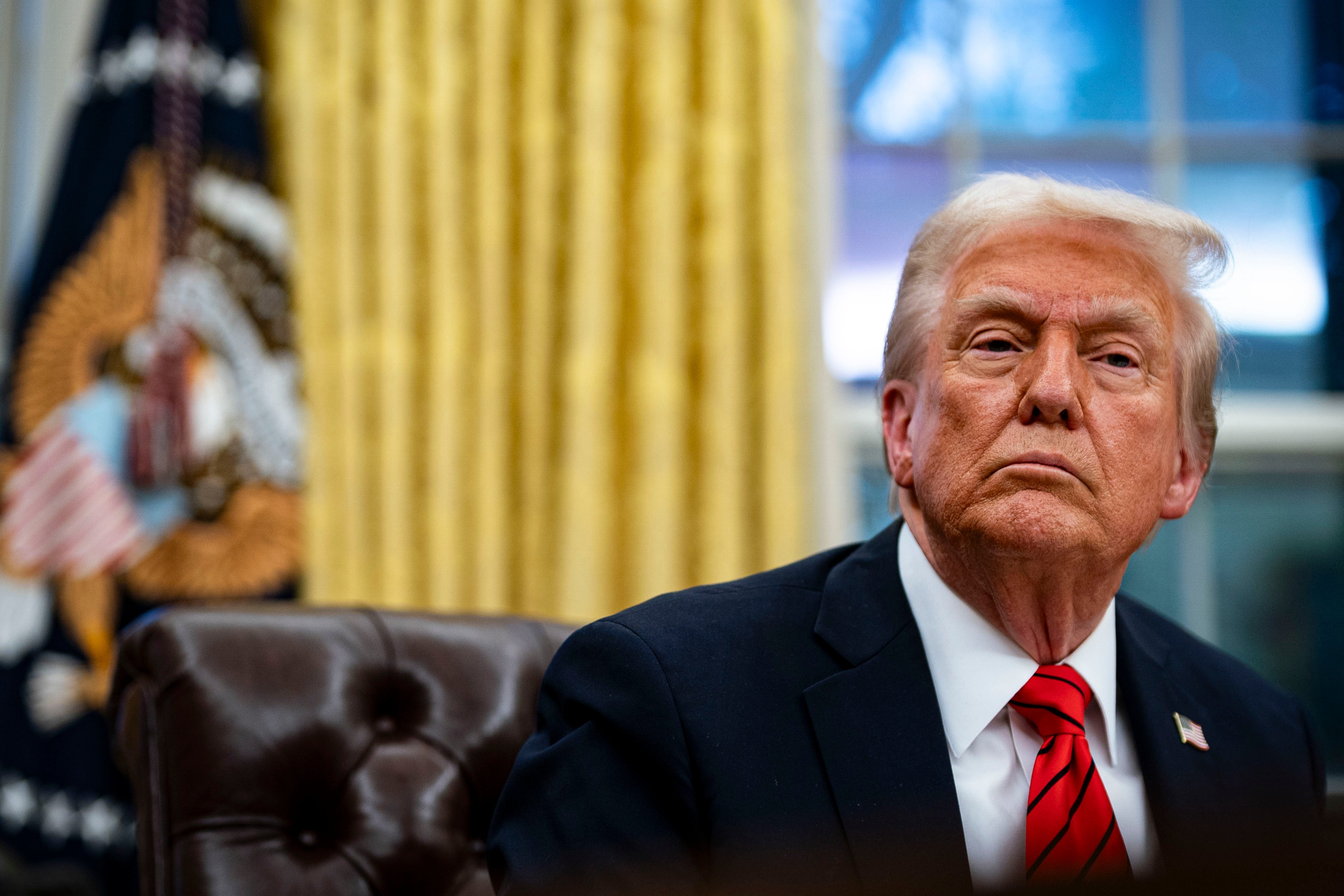
TRUMP’S BOLD Move: Meeting Putin in Saudi Arabia Sparks Debate
— Former President Donald Trump announced plans to meet Russian President Vladimir Putin in Saudi Arabia. This follows a phone call about the Ukraine conflict. Trump’s statement comes as U.S.-Russia tensions rise and peace talks continue.
Trump stressed the need to engage with global leaders to ease hostilities. He called Putin a “smart player” and suggested direct talks could lead to progress on Ukraine. Reactions are mixed, with some supporting his diplomatic approach and others criticizing potential normalization with Russia during its military actions in Ukraine.
Analysts are watching this possible meeting closely, as it might signal a shift in U.S. policy towards Russia under the current administration. The situation in Ukraine remains contentious globally, with U.S. allies backing Ukrainian forces against Russian aggression.
Trump’s remarks come amid Republican debates on future foreign policy directions and relations with Russia, highlighting differing views within the party on how best to handle international conflicts like Ukraine’s ongoing crisis.

— Trump hints at military action to secure Panama Canal and Greenland The president-elect emphasized the importance of US control over both regions for national security, stating he won’t dismiss the use of force

ASSAD’S Fall Rocks Syria: Russia’s Strategic Nightmare
— The fall of Bashar al-Assad’s regime in Syria marks a major shift after 14 years of civil war. Assad, backed by Russia and Iran, has been ousted, leaving these powers to handle the fallout. This change challenges Russia’s strategic interests in the Middle East.
Russia aimed to maintain its influence in the region through military bases like Khmeimim and Tartus. With Assad out, these assets are now at risk. Rebekah Koffler calls this a strategic defeat for Russia amid its ongoing conflict in Ukraine.
Ksenia Svetlova from the Atlantic Council criticized Russia’s failure to keep its promises in Syria. She noted that Moscow’s abandonment of Assad makes it look like an unreliable ally, unlike U.S. support for Israel during crises. This perception weakens Russia’s position among Middle Eastern allies.
Former President Trump commented on the situation saying, “Assad is gone,” highlighting the rebels’ success against the longtime dictator. The event underscores shifting power dynamics and raises questions about future regional stability and alliances.

— Assad Granted Asylum in Russia Deposed Syrian president Bashar al Assad and his family have reportedly arrived in Moscow, securing asylum following his ousting
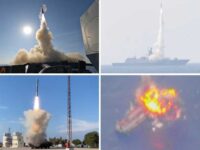
RUSSIA’S Military Drills in Syria: A Powerful Warning to Ukraine
— Russia recently held major military drills around Syria, showing off its naval and air strength. The exercises involved 1,000 personnel, ten ships, and 24 aircraft. This display is seen as support for Syria and a warning to Ukraine.
The Kremlin called the drills “joint” operations that follow international law. Footage showed modern frigates like Admiral Gorshkov with older Syrian missile boats. Russia also tested its Oniks anti-ship cruise missile during these exercises.
A key moment was the launch of a Zircon hypersonic cruise missile from a frigate, praised by President Putin as a “superweapon.” The Zircon can target ships and land installations. Moscow said another launch from the submarine Novorossiysk involved a Kalibir missile, used often against Ukraine.
These missiles worry Kyiv due to their nuclear capabilities and effectiveness in warfare. Ukraine keeps a close watch on Russian Kalibir-capable ships in the Black Sea as part of its defense strategy against Russian aggression.
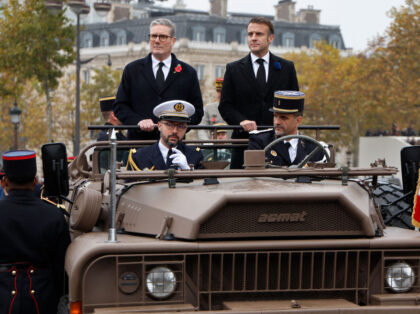
EUROPEAN Allies RALLY to Defend Ukraine as Trump Era Looms
— London, Paris, and Warsaw are forming a core group to support Ukraine against Russia, anticipating changes in U.S. policy under a possible Trump presidency. Donald Trump hasn’t detailed his plans for ending the conflict but has mentioned options like land swaps or demilitarized zones. These strategies clash with Ukraine’s goal of total victory over Russia.
British Prime Minister Sir Keir Starmer met French President Emmanuel Macron in Paris to discuss defense matters and support for Ukraine. They want outgoing U.S. President Joe Biden to allow Ukraine’s use of long-range missiles against Russia before any Trump policy shift. The U.S., however, worries this could escalate tensions with Moscow significantly.
A UK government source stressed the urgency of maximizing efforts before Trump’s potential presidency begins on January 20th. Starmer and Macron aim to strengthen Ukraine’s position as winter nears and after Trump’s re-election announcement days ago, despite financial challenges faced by both the UK and France amid budgetary issues.
Poland, led by Prime Minister Donald Tusks, is also increasing its role in this emerging anti-Trump alliance within Europe. Meetings between Polish leaders and European counterparts are planned to involve NATO members from Scandinavia as well.

RUSSIA’S Dangerous Plot: Planes to US and Canada at Risk
— Western security officials suspect Russia is plotting to plant EXPLOSIVES on planes bound for the United States and Canada. Two incendiary devices ignited at DHL logistics hubs in Germany and England, triggering a multinational investigation. Intelligence agencies found electric massagers with flammable substances were used as a “test run” for Russian sabotage efforts.
Poland’s National Prosecutor’s Office arrested four suspects linked to the DHL hub fires, charging them with “sabotage or terrorist operations.” The suspects allegedly tested parcel transfer channels intended for North America. Authorities have not disclosed their identities or nationalities.
Pawel Szota, head of Poland’s foreign-intelligence agency, attributed the plot to Russian spies. He warned that any attack would mark a “major escalation” of Russia’s sabotage against Western nations. This revelation underscores rising tensions between Russia and Western powers amid ongoing geopolitical conflicts.

— BRICS Poised to Lead Global Economic Growth, Says Putin Russian President Vladimir Putin asserts that the BRICS nations will be the primary drivers of economic expansion, overshadowing Western influence

— Starmer: Putin Can End Ukraine War Anytime UK Labour leader Keir Starmer asserts that Russia initiated the conflict and can halt it at will, ahead of discussions with President Biden on lifting restrictions on Western weaponry for Ukraine

— Zelenskyy to Unveil Ukraine’s 'Victory Plan’ in US This September The Ukrainian president announced that the ongoing military counteroffensive in Russia’s Kursk region, home to a nuclear power plant, is a key component of the strategy
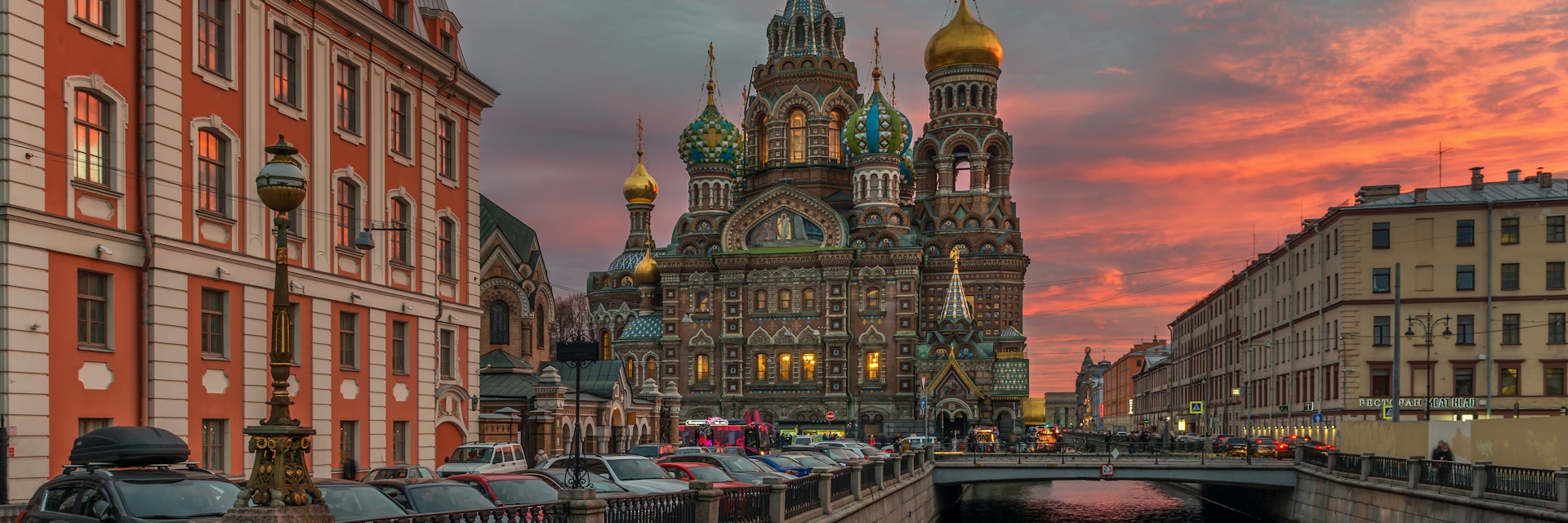
RUSSIA’S Nuclear Warning: UK Military Sites in Crosshairs Amid Escalating Tensions
— Russia has heightened tensions by threatening to target UK military bases. This aggressive stance follows Britain’s decision to supply weapons to Ukraine, which Russia alleges have been used against its territory. This threat emerges as Russia prepares for President Vladimir Putin’s fifth term inauguration and the national Victory Day celebrations.
In a bold response to what it describes as Western provocations, Russia is set to conduct military drills that simulate the use of tactical nuclear weapons. These exercises are unique because they focus on battlefield nuclear capabilities, unlike typical maneuvers involving strategic nuclear forces. Tactical nuclear weapons are intended for localized impact, minimizing broader destruction.
The global community has expressed deep concern over these developments. U.N. spokesman Stephane Dujarric voiced worries about the increasing talk of nuclear arms usage, describing the current risks as “alarmingly high.” He emphasized the need for nations to refrain from actions that might lead to misjudgments or catastrophic consequences.
These events underscore a critical moment in international relations, highlighting the delicate balance between national defense and global security threats. The situation calls for careful diplomatic engagement and a reassessment of military strategies by all involved nations to prevent further escalation of tensions.

PUTIN’S NUCLEAR Warning: Russia Ready to Defend Sovereignty at ANY Cost
— In a stark warning, President Vladimir Putin has declared that Russia stands ready to employ nuclear weapons if its statehood, sovereignty or independence comes under threat. This alarming statement comes on the eve of a presidential election this week where Putin is anticipated to secure another six-year term.
During an interview with Russian state television, Putin underscored the full readiness of Russia’s nuclear forces. He confirmed that the nation is militarily and technically prepared and would resort to nuclear action if its existence or independence was threatened.
Despite his continuous threats since launching the invasion of Ukraine in February 2022, Putin refuted any plans of using battlefield nuclear weapons in Ukraine as there hasn’t been any necessity for such drastic measures so far.
U.S President Joe Biden was characterized by Putin as an experienced politician who comprehends the potential dangers of escalation. He voiced optimism that the U.S would avoid actions that could potentially ignite a nuclear conflict.

Video
RUSSIAN TREASON Cases Soar Since Ukraine Invasion
— Maksim Kolker received a shocking call at 6 a.m. informing him of his father’s arrest. Initially, he thought it was a scam. His father, Dmitry Kolker, a prominent Russian physicist battling advanced pancreatic cancer, confirmed the grim news himself.
Dmitry Kolker had been charged with treason, a crime that has become increasingly common in Russia since the 2022 invasion of Ukraine. These cases are investigated by the Federal Security Service (FSB) and often involve secretive proceedings and harsh sentences.
The surge in treason and espionage prosecutions has drawn comparisons to Stalin-era show trials. Victims include Kremlin critics, independent journalists, and veteran scientists working with countries considered friendly by Moscow.
Accused individuals are typically held in strict isolation at Moscow’s Lefortovo Prison and tried behind closed doors. Convictions almost always result in long prison terms, highlighting an unprecedented crackdown on dissent under President Vladimir Putin’s regime.

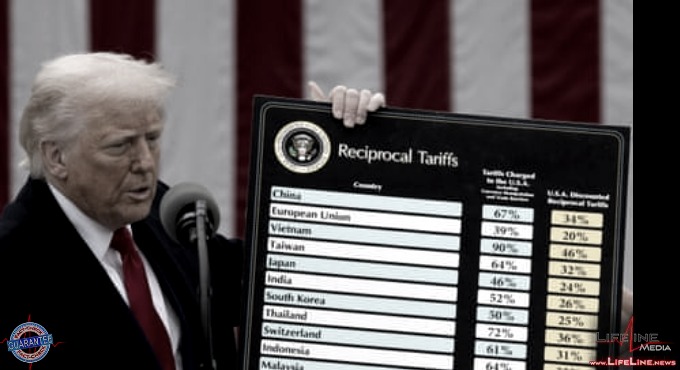
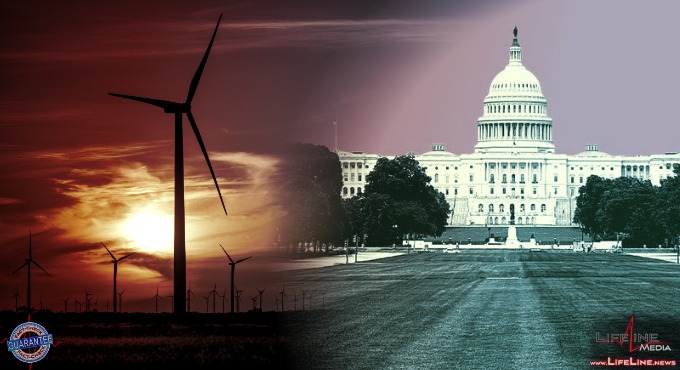
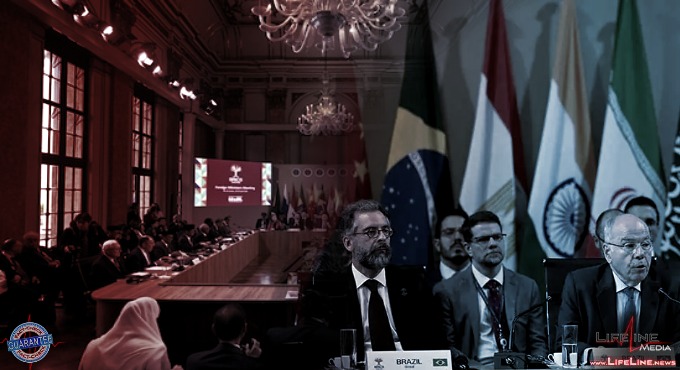
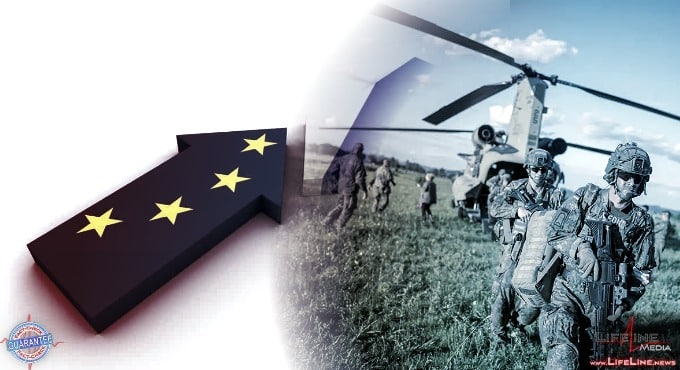
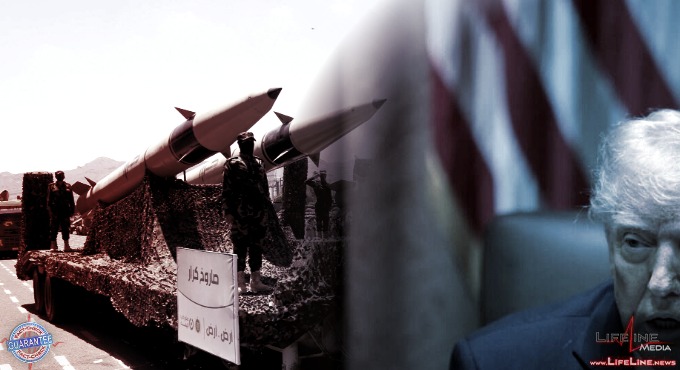
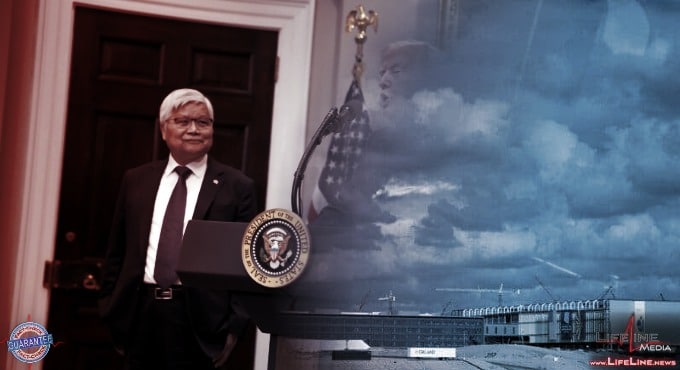
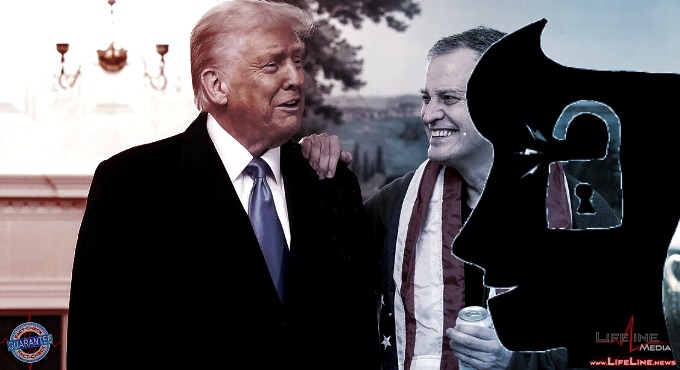
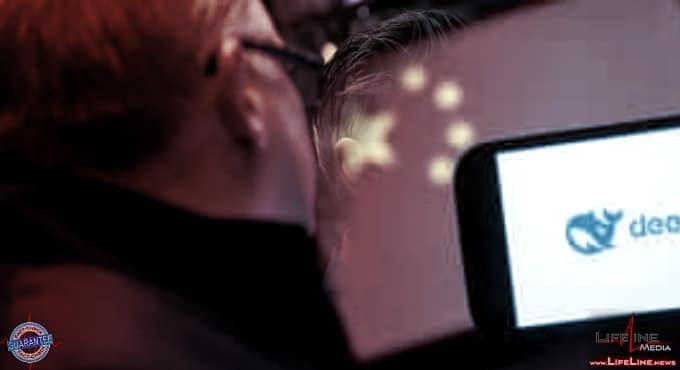

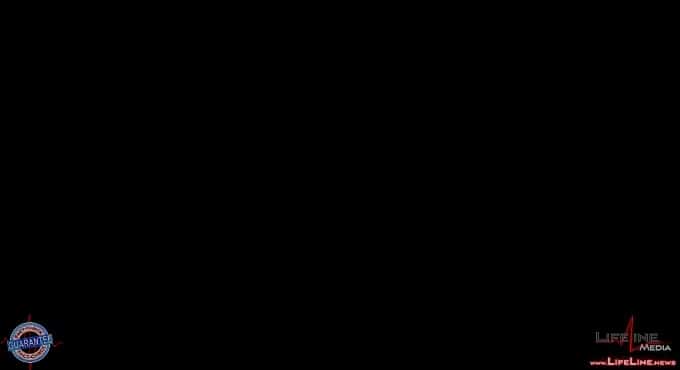
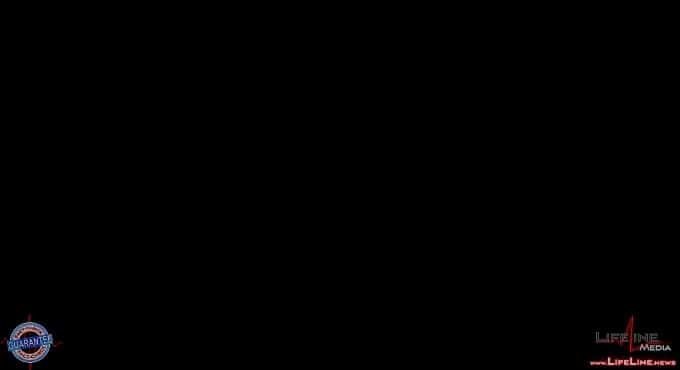
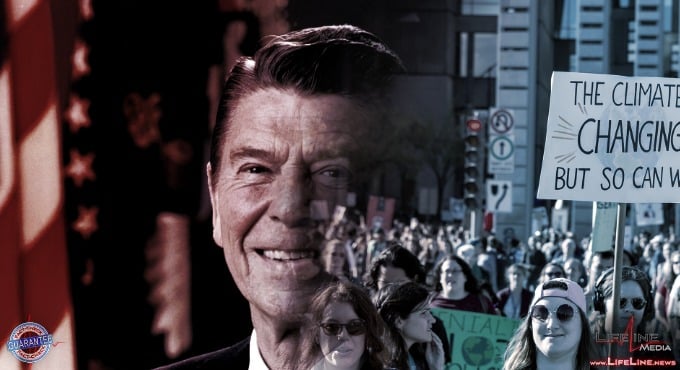
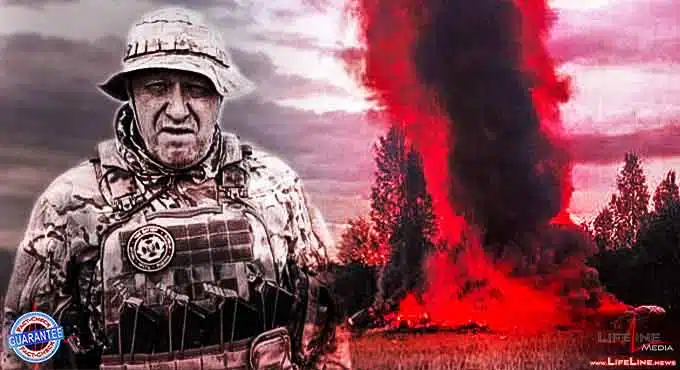
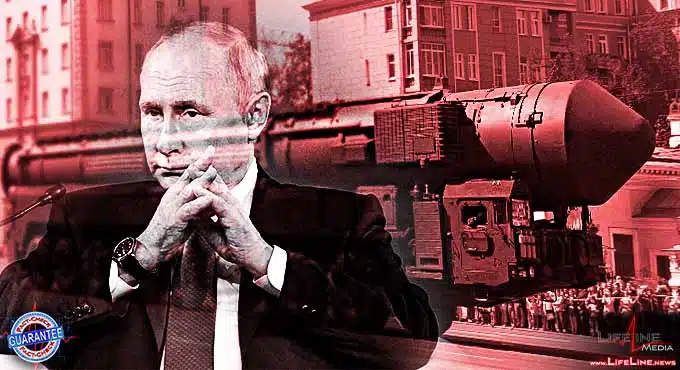
Social Chatter
What the World is SayingCongratulations to the US and Ukraine on a historic minerals deal - committing the US to a “free, sovereign and secure Ukraine.” There is only one man still blocking peace on those terms,...
. . .Putin must pay. It’s unthinkable to give him a bailout. A long-term plan needs global leadership. We all need to do more, but now as Canada hosts the upcoming G7 Leaders’ Summit there is...
. . .What a surprise - Putin rejects an unconditional ceasefire. He wants to keep bombing and killing innocent Ukrainians. He wants Ukraine disarmed. He wants Ukraine neutralised. He wants to make...
. . .Vladimir Putin must pay for the destruction he has caused in Ukraine. $300bn in frozen Russian assets sit in Western financial systems. If we don’t act, they could be handed back to Moscow...
. . .The message is simple: if we let Russia off the hook, we set a dangerous precedent for other aggressors. That’s why we must act. Read my full argument in today’s @thetimes 👇
. . .